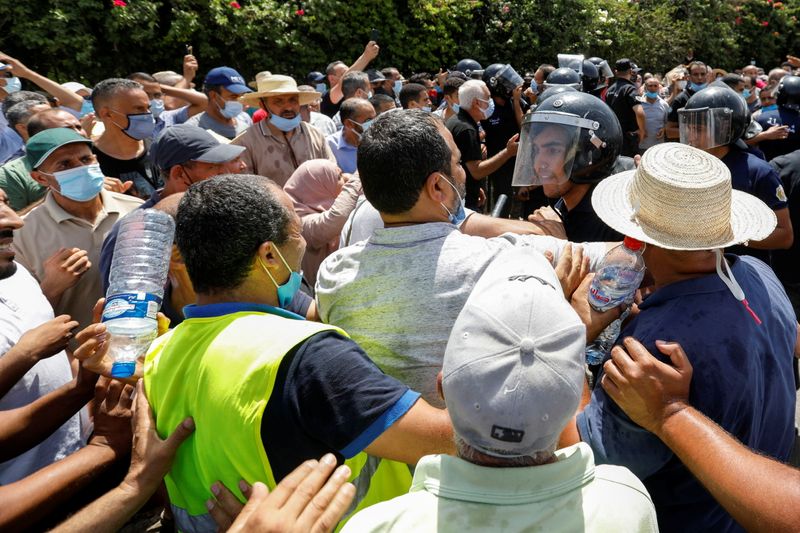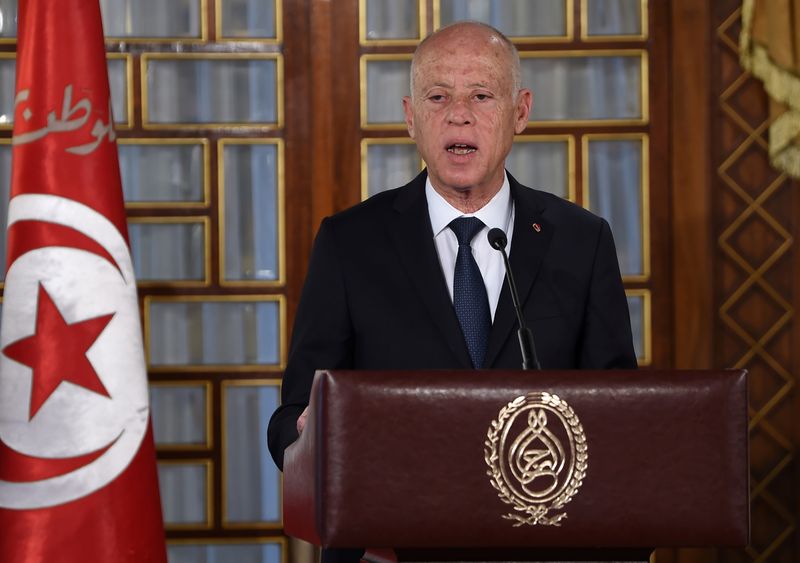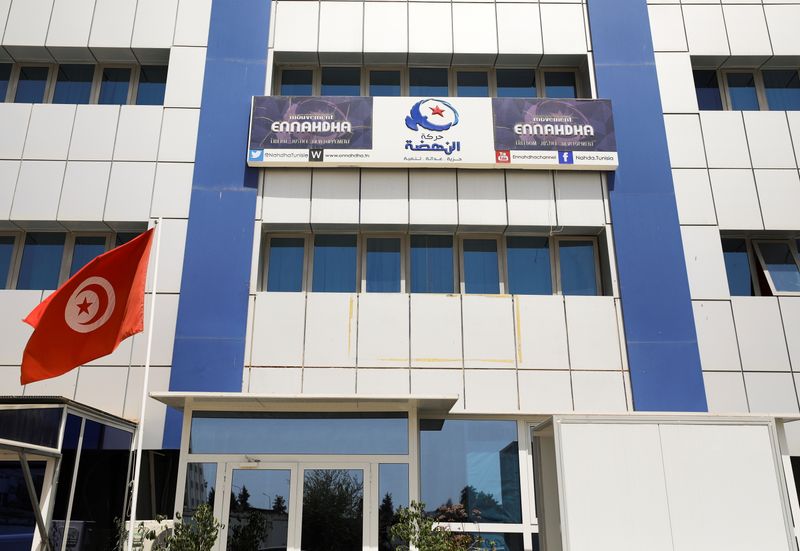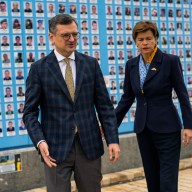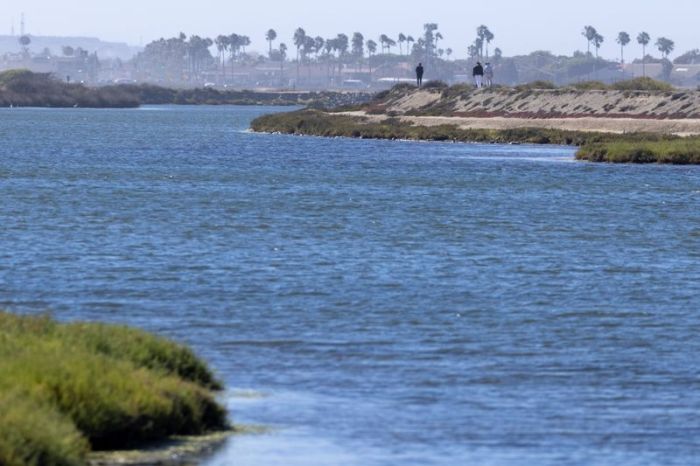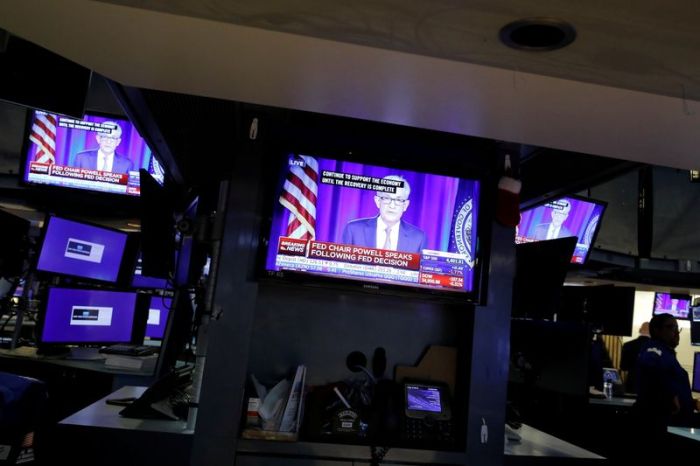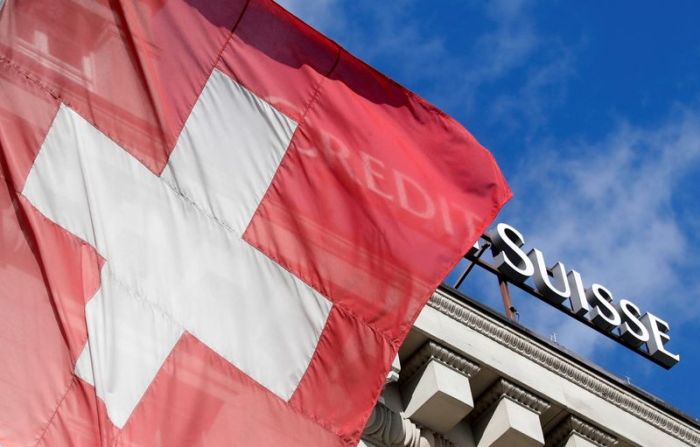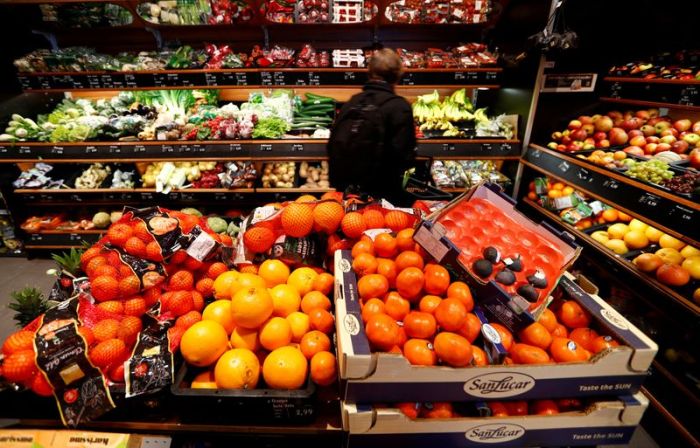By Tarek Amara
TUNIS (Reuters) -U.S. Secretary of State Antony Blinken on Thursday said he had urged Tunisia’s president to take action that would return the country “to the democratic path” after his seizure of governing powers on Sunday.
President Kais Saied invoked a national emergency over the pandemic and poor governance to dismiss the prime minister, freeze parliament and seize executive control in a move welcomed by street rallies, but which his opponents branded a coup.
Blinken spoke to Saied on Monday. In an interview given to Arabic-language Al Jazeera on Thursday, according to a transcript provided by the State Department, he said he was concerned that the steps “run counter to the constitution”.
His words appear stronger than previous U.S. statements on the crisis unfolding in Tunisia, where the introduction of democracy after a 2011 revolution that triggered the “Arab spring” was widely praised by Western countries.
Four days after Saied announced his moves, he has not appointed a new prime minister or given any further details on how he means to handle the 30-day period during which he said parliament would be frozen.
On Thursday he appointed his national security adviser to take control of the Interior Ministry but promised to uphold rights and freedoms. “No one has been arrested. No one has been deprived of his rights,” he said.
It has left both Tunisians and the wider international community scrambling to interpret a crisis that has left Tunisian democracy at a crossroads.
Supporters of Saied have cast his intervention as a welcome reset for the 2011 revolution after years of economic stagnation under a political class that has often appeared more interested in its own narrow advantage than in national gain.
COVID-19 cases have spiralled in recent months while the economy has suffered, fuelling bouts of protest against the government and major parties in parliament.
However, Parliament Speaker Rached Ghannouchi, head of the moderate Islamist Ennahda party, quickly labelled it a coup – language repeated by the three next-largest parties in parliament.
Saied, a political independent without a party machine or other formal organisation behind him, has been backed by the actions of the army, which surrounded the parliament and government buildings on his orders.
Saied’s critics fear he may be pushing towards a more authoritarian stance, though he has denied a coup and vowed to uphold citizens’ rights and freedoms.
“There are two paths, either a setback to the revolution” or an opportunity to relaunch its democracy with political reforms including a new electoral and political law, said Nizar Makni, a Tunisian politics professor.
Tunisia has strong civil society organisations, including the million-member labour union, that are able to exert great sway over the authorities by mobilising on the street or by shutting down the economy, and which back democracy.
The union, the UGTT, has not denounced Saied’s steps but has pushed for him to stay within the constitution. On Thursday, UGTT officials said they were preparing a roadmap to exit the crisis that they would present to Saied.
CALM
The streets of Tunisian cities appeared calm on Thursday after major parties decided earlier in the week to avoid any major protests or confrontations for now, and after Saied imposed stricter COVID-19 measures.
An opinion poll published in Tunisian media on Wednesday by Emhrod, a company whose surveys before the 2019 election were close to the eventual results, said nearly nine in 10 Tunisians backed his actions.
However, people do want to see results.
“There is no blank cheque… He must come out every day to tell us what he will do,” said Hatem Belkadhi, a man speaking on a central Tunis street.
There is no indication that Saied will find it any easier to handle the country’s economic problems than successive previous governments.
While foreign lenders demand clear economic reforms to put Tunisia’s fiscal position into better order, the UGTT is ready to mobilise against moves that rebound on poorer people – including subsidy cuts or reductions to the public wage bill.
Saied’s advisers lack experience in direct governance, while the difficult decisions that will be needed to manage the situation may undermine his support said Tarek Megerisi of the European Council on Foreign Relations.
“His popularity now is a law of diminishing returns,” he said. “Everything he does is going to lose him some supporters.”
(Reporting by Tarek Amara in Tunis and Ghaida Ghantous in Dubai; writing by Angus McDowall; editing by Frances Kerry, Nick Macfie and Richard Pullin)

